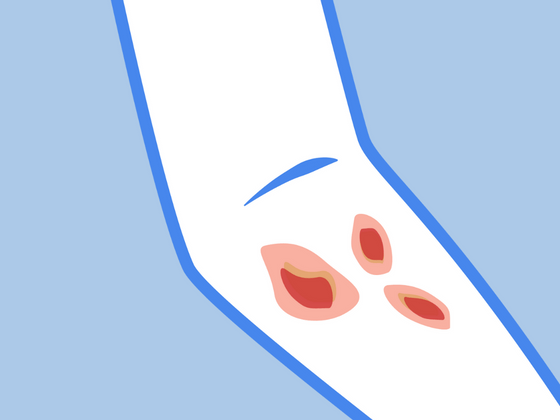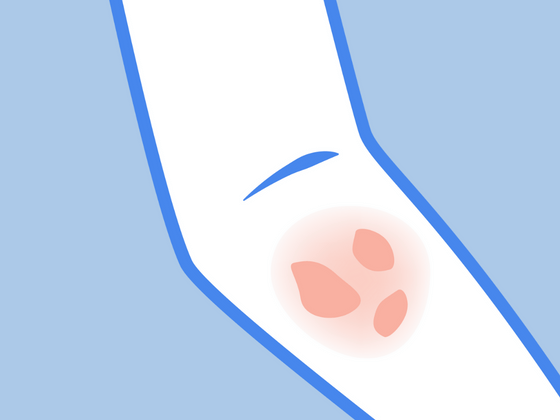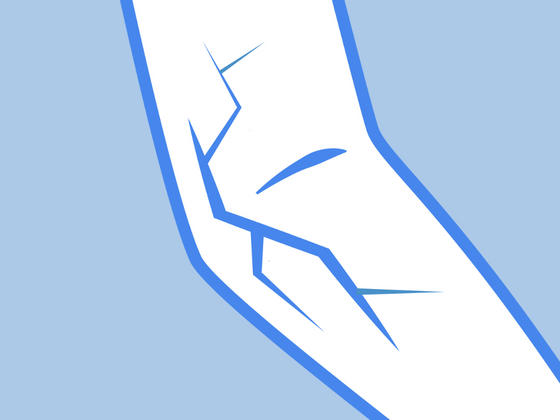Asteatotic eczema is one of the many forms of eczema. Also known as xerotic eczema or eczema craquelé, it is defined by incredibly rough, dry, and scaly skin. While eczema is a condition that typically develops during childhood, asteatotic eczema tends to affect older people. That being said, it’s still possible for younger people to develop the condition. Read on as we discuss asteatotic eczema in more detail – including causes, symptoms, and natural treatment methods.
Please keep in mind that although what we discuss in this post can relieve eczema, we are in no way medical professionals. If you’re experiencing severe eczema symptoms like an infection, it is best to seek medical advice immediately.
Asteatotic Eczema in a Nutshell
This abnormally dry and itchy condition usually affects the lower legs – particularly the shins. However, it can also develop on the thighs, arms, tummy and back. The reason the condition tends to affect those over 60 years old may be due to the fact that skin naturally gets drier with age.
Symptoms of Eczema Asteatotic
Asteatotic eczema can be identified by its primary characteristic: excessively dry skin. This can be accompanied by red and flaky patches, as well as pink or red grooves.
Symptoms tend to flare in winter, especially when indoor heating is decreased by humidity. On the other hand, you may notice that your symptoms improve when indoors or when in warm, humid climates.
What Causes Asteatotic Eczema?
While the exact cause of this disease is unknown, there are plenty of sources of irritation that can trigger a reaction. As previously mentioned, one of these factors is dry air with low-humidity. Other risk factors can be frequency of bathing, chemicals found in soaps, cleansers or beauty products. Using gentle eczema soap can help minimize irritation, and even diet.
Symptoms can further be aggravated by excessive scrubbing of the skin or rough drying with a towel after bathing instead of gently patting dry.
How to Treat Asteatotic Eczema Naturally
In addition to avoiding triggering factors, the best thing to combat the drying effects of asteatotic eczema is to keep the skin hydrated with a quality eczema cream. Here are some of our best natural treatment options and simple behaviour changes to help restore moisture to your skin:
Take Shorter Showers or Baths
To avoid the drying effects of hot water, we highly recommend you use lukewarm water instead. It’s also important to take shorter showers (five to ten minutes). When washing, be sure to use a natural soap that won’t aggravate a reaction due to chemicals or toxins. We recommend this Emily Skin Soothers. Rich and moisturizing, it’s perfect for dry skin as it won’t strip the skin of its protective oils.
Use a Natural Moisturizer
This Organic Manuka Skin Soothing Cream is the perfect solution for even the driest of skin. With its non-burning, non-sticky formula, it’s an oil-based balm that's incredibly soft and creamy. For an excellent natural option, consider our beef tallow cream. Your skin will love the soothing and nourishing effects of its 6 natural ingredients – including Manuka honey, organic tree nut-free oils and beeswax.
Prevent Scratching–as dry skin is incredibly itchy, it’s essential to prevent scratching to reduce the risk of infection. There’s no better way to protect your skin than with these Cotton Adult Scratch Sleeves with Anti Scratch Mitts. Wear overnight to prevent scratching unknowingly in your sleep.
Wear Eczema Friendly Clothing
Nylon, wool, and polyester can irritate eczema-prone skin which is why clothing is so important. These form-fitting eczema pants for both adults and kids offer a gentle layer of protection. Made with eco-friendly, breathable TENCEL and embedded with anti-inflammatory zinc, they work wonders fighting the urge to scratch while inhibiting bacterial growth. Because of their snug, legging-like fit, they’re perfect for wearing underneath regular clothes to work (no added bulk) or alone as pajamas.
References:
https://eczema.org/information-and-advice/types-of-eczema/asteatotic-eczema/








